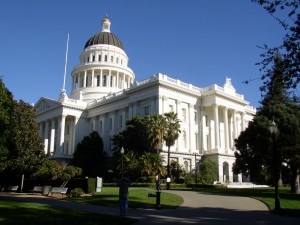The Affordable Care Act calls for an expansion of Medicaid -- or Medi-Cal in California. Last week the feds were clear that states must expand to the mandated 138 percent of poverty in order to get federal funds. Feds have promised to pick up 100 percent of the costs of these new enrollees for the first three years. Expanding to 138 percent of poverty means another 1.5 million Medi-Cal recipients.
So now we know who will receive Medi-Cal benefits, but California's Secretary of Health and Human Services, Diana Dooley has already signaled concern about being "on the hook for promising things we can't deliver."
In other words, the Administration is looking at limiting benefits as KPCC's Julie Small reported this morning on The California Report. For starters, after the three years of federally-funded Medi-Cal expansion, states must pick up 10 percent of the tab -- or an estimated $6 billion within the next decade, according to the Kaiser Family Foundation. While California is committed to expanding Medi-Cal, the prospect of limited benefits is a concern to advocates, including Vanessa Cajina with the Western Center on Law and Poverty. From Small's report:
"We want to provide coverage for people that they can afford and that’s accessible and still having the question open is disconcerting at this point," Cajina said.
Democratic lawmakers agree. San Gabriel Valley Senator Ed Hernandez -- a former optometrist who chairs the Senate Health Committee -- told advocates at [a recent] symposium he’s pushing to get California to offer the maximum benefits to the new group of people who qualify for Medi-cal.
"I have every intention to make sure that every single person has the fullest amount of benefits available and draw down as many federal dollars as we possible can," Hernandez said.
Hernandez thinks California should also raise the rates the state pays providers for treating Medi-Cal patients. California ranks 47th in the nation for the lowest rates -- so low that many physicians refuse to participate.
Democrats also want to reinstate some benefits cut in recent years, like dental coverage for adults. Patients can now get covered for a tooth extraction, but not for dentures.
Some Democrats believe they should use their new super-majority status in both houses to reinstate some of these benefits. Small reports that Republicans could get behind some of these ideas -- but only "if lawmakers rein in Medi-Cal's administrative costs."
A special legislative session about the Affordable Care Act -- and the Medi-Cal expansion -- is expected in January.
